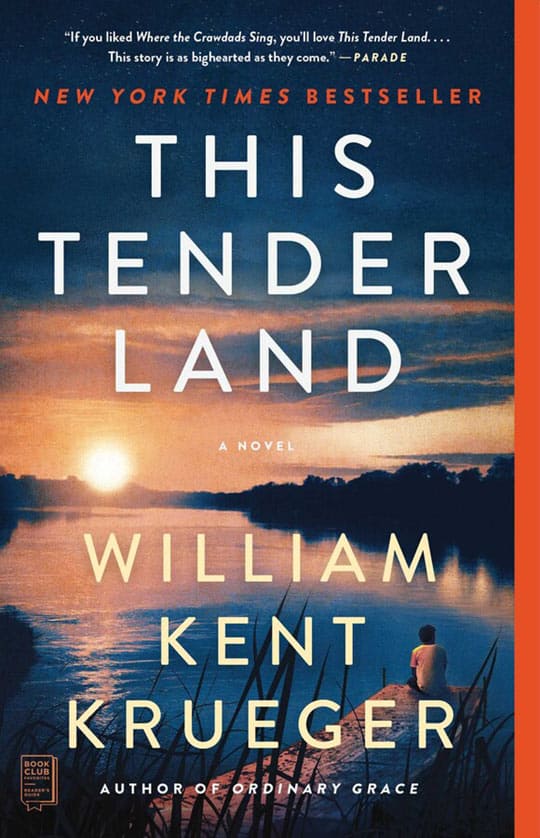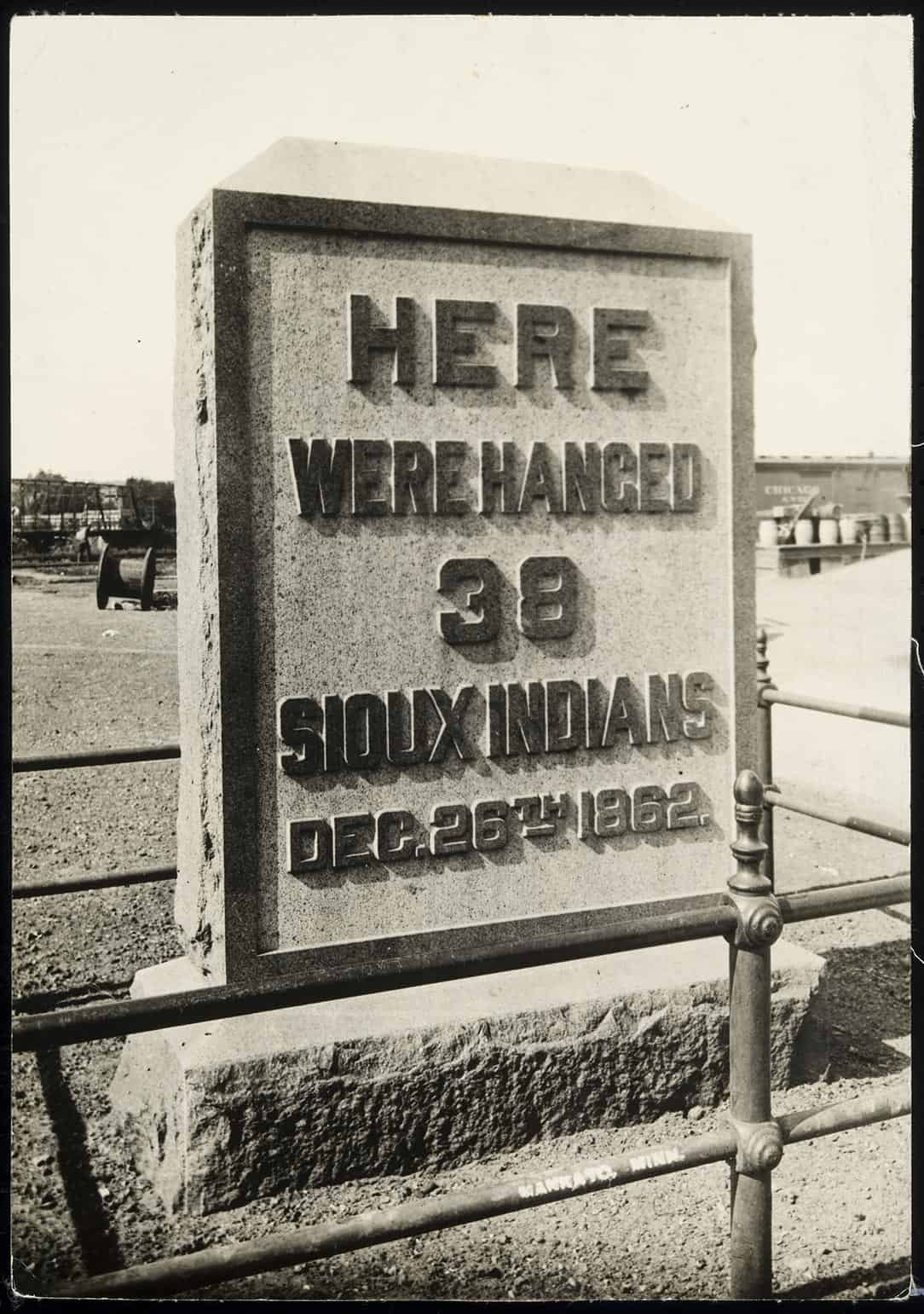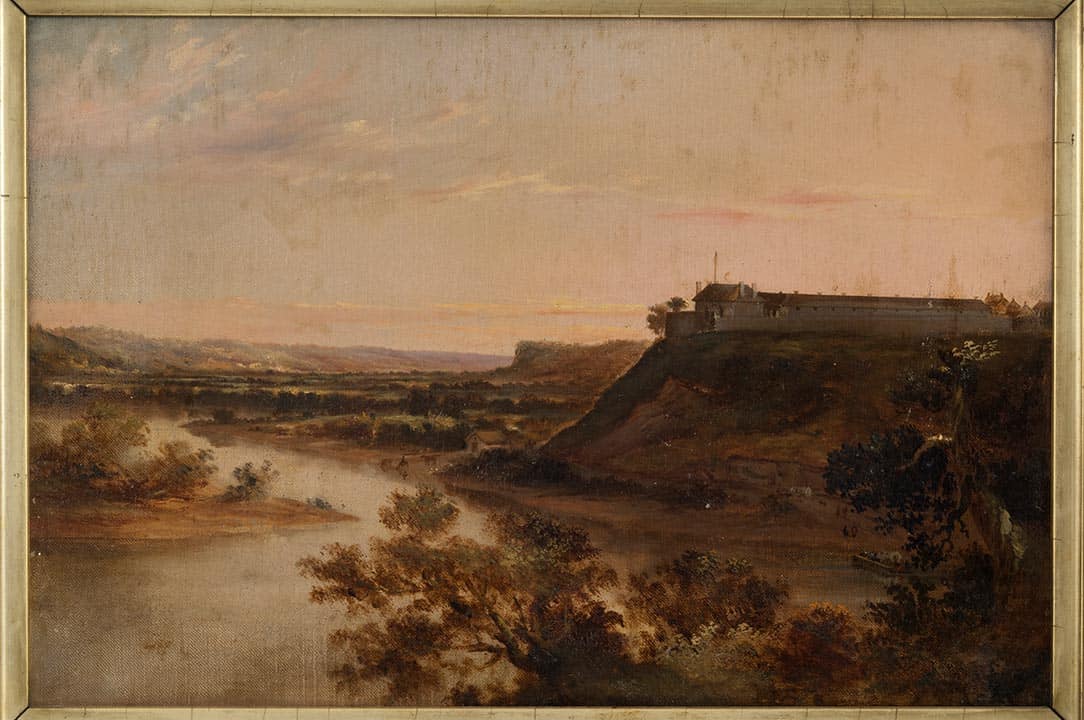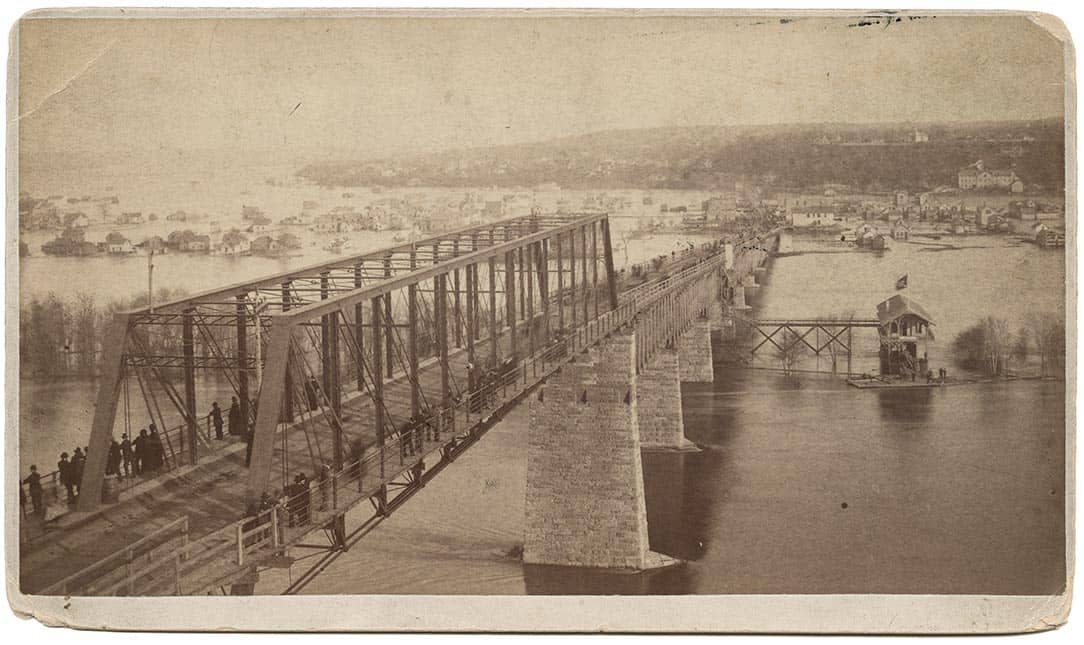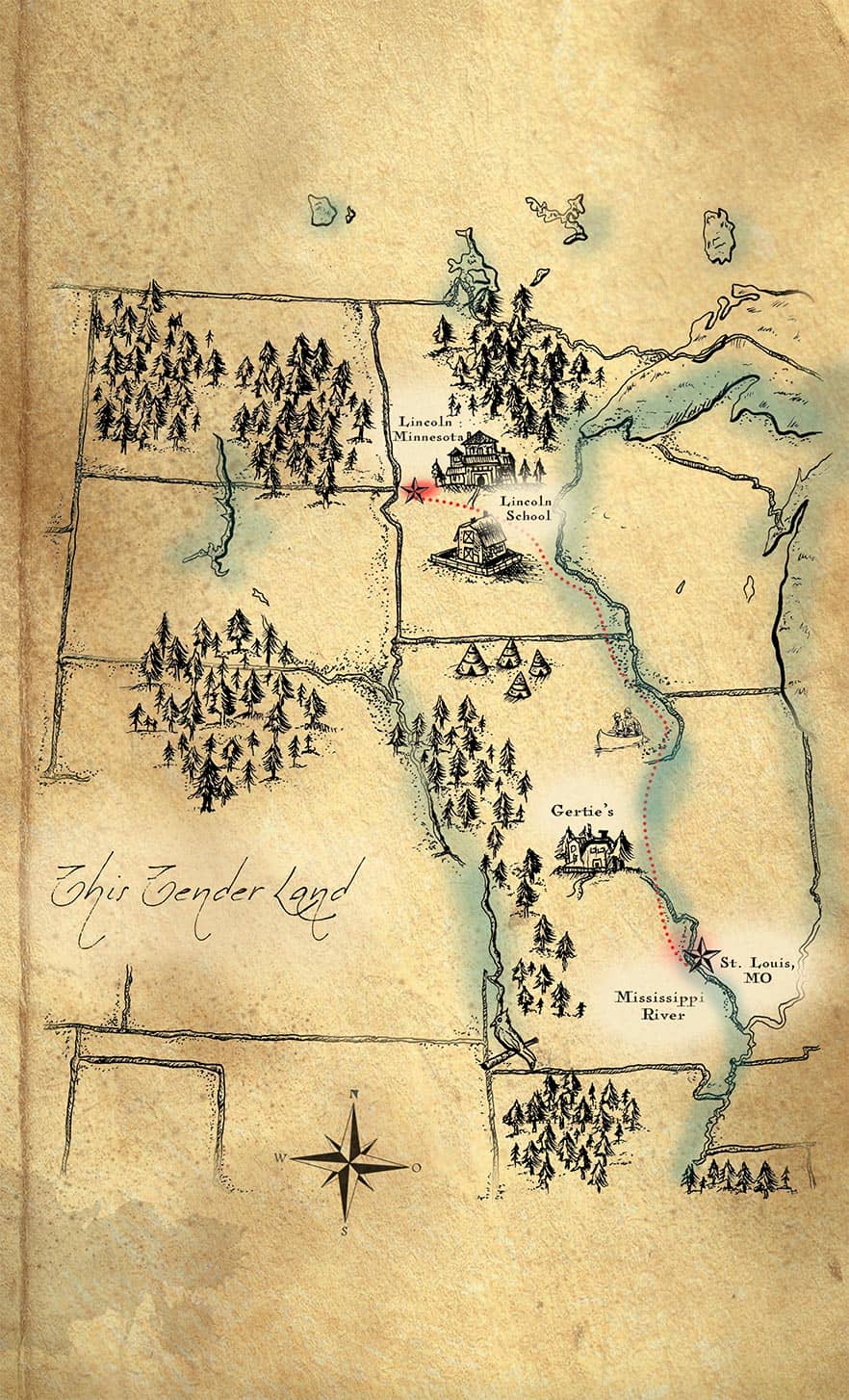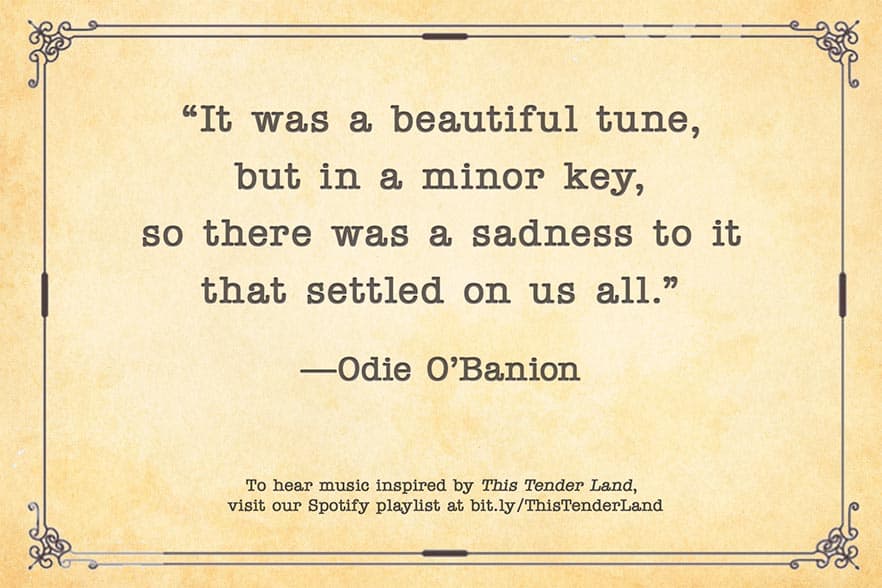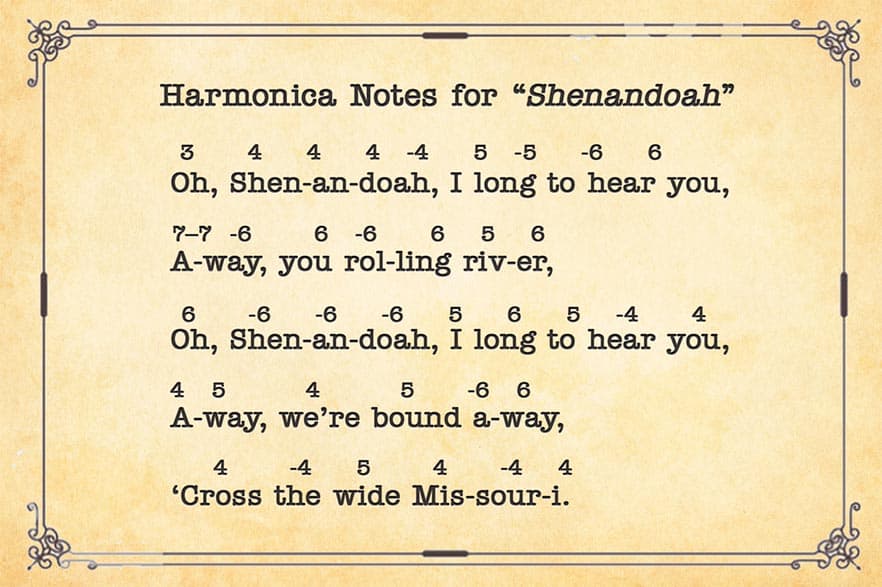On Sale Now in Paperback
- New York Times Bestseller
- USA Today Bestseller
- Wall Street Journal Bestseller
- Los Angeles Times Bestseller
- Indie Bestseller
- Publishers Weekly Bestseller
- #1 Indie Next Pick
- Library Reads Selection
- Book of the Month Selection
Order the Book
Atria Books Hardcover September 2019, ISBN 978-1476749297
DESCRIPTION
For fans of Before We Were Yours and Where the Crawdads Sing, a magnificent novel about four orphans on a life-changing odyssey during the Great Depression.
1932, Minnesota—the Lincoln School is a pitiless place where hundreds of Native American children, forcibly separated from their parents, are sent to be educated. It is also home to an orphan named Odie O’Banion, a lively boy whose exploits earn him the superintendent’s wrath. Forced to flee, he and his brother Albert, their best friend Mose, and a brokenhearted little girl named Emmy steal away in a canoe, heading for the mighty Mississippi and a place to call their own.
Over the course of one unforgettable summer, these four orphans will journey into the unknown and cross paths with others who are adrift, from struggling farmers and traveling faith healers to displaced families and lost souls of all kinds. With the feel of a modern classic, This Tender Land is an enthralling, big-hearted epic that shows how the magnificent American landscape connects us all, haunts our dreams, and makes us whole.
PRAISE
New York Times Bestseller
#1 Indie Next Pick for September!
Library Reads Selection for September
Book of the Month September Selection
“If you liked Where the Crawdads Sing, you’ll love This Tender Land by best-selling author William Kent Krueger. The story is as big-hearted as they come”
—PARADE
“If you’re among of the millions (no hyperbole!) who raced through Where the Crawdads Sing this year and are looking for another expansive, atmospheric American saga, look to the latest from Kreuger (Ordinary Grace), set in the Great Depression and centered on four young loners forced to set off on their own.”
—Entertainment Weekly
“Part Grapes of Wrath, part Huckleberry Finn, Krueger’s novel is a journey over inner and outer terrain toward wisdom and freedom…Like Ordinary Grace, it is a compelling tale told through the eyes of a boy who translates the world in all its beauty and meanness and emerges hopeful on the other side.”
—Minneapolis Star-Tribune
“Life for the four river vagabonds, traveling a step or two ahead of the law, is similar to that of Huck and Jim on the Mississippi (Huckleberry Finn), as they meet a rogues gallery of colorful characters.”
—St. Louis Post Dispatch
“This Tender Land is rich with graceful writing and endearing characters.”
—Denver Post
“Lively . . . Krueger’s enjoyable riff on The Odyssey will satisfy fans of American heartland epics.”
—Publishers Weekly
“Richly imagined and exceptionally well plotted and written, the novel is, most of all, a compelling, often haunting story that will captivate both adult and young adult readers.”
—Booklist
“A reading of This Tender Land flows like the Mississippi River, which runs through the novel in a quiet backdrop. Although it takes place in a bygone era, the themes are contemporary, as occurs with the best of historical fiction, of which this book should certainly be included.”
—Booklist
“This Tender Land is a moving portrait of a time and place receding from the collective memory, but leaving its mark on the heart of what the nation has become.”
—CrimeReads
“A book you won’t own. It will own you. Long, sprawling, and utterly captivating, readers will eat up every delicious word of it.”
—New York Journal of Books
“Krueger is a gem of a storyteller…The four Vagabonds in this narrative captured my imagination and their journey across America brought images of the depression into focus.”
—Stephanie Crowe, Page & Palette, Fairhope, AL
“An amazing book, like Huck Finn.”
—Barbara Peters, Poisoned Pen, Scottsdale, AZ
“Beautifully rendered and written.”
—Annie Philbrick, Bank Square Books, Mystic, CT
“William Kent Kruger’s This Tender Land is an epic adventure, a story that takes us on a journey through one boy’s Depression-blighted summer of 1932. Fans of historical fiction will love this well-researched tale.”
—Janet Geddis, Avid Bookshop, Athens, GA
“This Tender Land is an epic story as big as the Mississippi River herself. William Kent Krueger has an extraordinary way with words and his storytelling pulls the reader in like a strong current. This vagabond saga has everything one could possibly want from a great work of fiction: thrills, danger, friendship, adventure, and an ending that leaves the reader sated and fulfilled. Anyone who likes to lose themselves in a great novel should get their hands on this work.”
—Mary O’Malley, Anderson’s Bookshop, LaGrange, IL
“William Kent Krueger is a gifted storyteller. This Tender Land is a powerful and beautiful tale… It was just what my heart was asking for and just what my soul needed… it will stay with me for a very long time.”
—Karen Bellovich, Anderson’s Bookshop, Naperville, IL
“This novel is brilliant…Classic tales of literature will always be used when comparing new works, but images of Huck Finn and Homer will pass through your mind as you travel along the waterways with these wonderful characters…will stay with you long after closing Krueger’s story… Beautiful storytelling.”
—Dan Radovich, Barnes & Noble, Vernon Hills, IL
“I lost myself in this amazing novel… This book is a treasure.”
—Maxwell Gregor, Lake Forest Book Store, Lake Forest, IL
“An exceptional journey! Bravo!”
—Lynn Thomas, Blue Moon Books, Jonesville, MI
“William Kent Kruger is a fabulous story teller. With a nod to Huck Finn and the Odyssey”
—Shirley Freeman, Bookbug, Kalamazoo, MI
“I couldn’t put this one down.”
—Tamara Tomac, Island Bookstore, Mackinac Island, MI
“Part Dickens, part Huck Finn – this harrowing adventure keeps the reader glued. A terrific read!”
—Karen McCue, McLean & Eakin, Petoskey, MI
“This Tender Land is a novel that touches your soul and haunts your memory… Reminiscent of Huckleberry Finn, and a tribute to classic American literature, readers should prepare to fall in love with Krueger’s cast of unforgettable children.”
—Pamela Klinger-Horn, Excelsior Bay Books, Excelsior, MN
“Does not disappoint. It’s a sprawling story of stories as fluid and full of twists and turns as the river it is set upon.”
—Gretchen, Valley Bookseller, Stillwater, MN
“So thought-provoking, so relevant, such great storytelling.”
—Lynn Price, Barnes & Noble, Springfield, MO
“This Tender Land is incredible. Not only is it an homage to Huckleberry Finn but also belongs in the category of the great Midwestern socially conscious novels as exemplified by Theodore Dreiser and Sinclair Lewis. It is powerful, pointed, perceptive, poignant and, in tribute to its protagonist, tells a great story.”
—Bill Cusumano, Square Books, Oxford, MS
“William Kent Krueger has outdone himself with this novel… Highly recommend to anyone who loves more than Historical Fiction, but romance, a mystery and soul searching literature.”
—Suzanne Lucey, Page 158 Books, Wake Forest, NC
“A quintessential Midwestern American fable, This Tender Land is a coming of age novel and a tale of an epic journey in the form of homage to The Odyssey and Huckleberry Finn.”
—Tammy Glen-Allen, indiCo, Oberlin, OH
“This new one should sit right alongside as a book that must be read.”
—Lois Proctor, The Bookseller, Ardmore, OK
“Anyone wanting a feel for Middle America at this time, with its tent revivals, faith healers, shanty towns, and the river life will want to add this book to their reading list.”
—Susan Bush, Island Bound Bookstore, New Shoreham, RI
“This Tender Land is a story that will gather you in and transport you to the world of Odie and Albert… the story is intricately plotted and compellingly written… The story will grab your heart and draw you in and is lushly and poignantly written. Bravo Mr. Krueger, you have gifted us with a gem!”
—Brent Funnel, Fiction Addiction, Greenville, SC
“Reminiscent of the epic adventures of Tom Sawyer and Huck Finn, This Tender Land is a fevered and hungry literary homage to youth, survival and courage in the face of unforgettable adventure.”
—Jesica Sweedler DeHart, Neill Public Library and @WanderingBookseller, Pullman, WA
“In the spirit of Huckleberry Finn… he is a masterful storyteller, blending historical details, community, and searching for faith in the face of tragedy and danger, all in the voice of a teenage boy that is as authentic as it is compelling…. A great book for everyone from 12 to 90! Highly recommend.”
—Todd Miller, Arcadia Books, Spring Green, WI
EXCERPT
PROLOGUE
IN THE BEGINNING, after he labored over the heavens and the earth, the light and the dark, the land and sea and all living things that dwell therein, after he created man and woman and before he rested, I believe God gave us one final gift. Lest we forget the divine source of all that beauty, he gave us stories.
I am a storyteller. I live in a house in the shade of a sycamore tree on the banks of the Gilead River. My great-grandchildren, when they visit me here, call me old.
“Old is a cliché,” I tell them, with mock disappointment. “A terrible trivializing. An insult. I was born along with the sun and earth and moon and planets and all the stars. Every atom of my being was there at the very beginning.”
“You’re a liar.” They scowl, but playfully.
“Not a liar. A storyteller,” I remind them.
“Then tell us a story,” they plead.
I need no goading. Stories are the sweet fruit of my existence and I share them gladly.
The events I’m about to share with you began on the banks of the Gilead. Even if you grew up in the heartland, you may not remember these things. What happened in the summer of 1932 is most important to those who experienced it, and there are not many of us left.
The Gilead is a lovely river, lined with cottonwoods already ancient when I was a boy.
Things were different then. Not simpler or better, just different. We didn’t travel the way we do now, and for most folks in Fremont County, Minnesota, the world was limited to the piece of it they could see before the horizon cut off the land. They wouldn’t have understood any more than I did that if you kill a man, you are changed forever. If that man comes back to life, you are transformed. I have witnessed this and other miracles with my own eyes. So, among the many pieces of wisdom life has offered me over all these years is this: Open yourself to every possibility, for there is nothing your heart can imagine that is not so.
The tale I’m going to tell is of a summer long ago. Of killing and kidnapping and children pursued by demons of a thousand names. There will be courage in this story and cowardice. There will be love and betrayal. And, of course, there will be hope. In the end, isn’t that what every good story is about?
CHAPTER ONE
ALBERT NAMED THE rat. He called it Faria.
It was an old creature, a mottle of gray and white fur. Almost always, it kept to the edges of the tiny cell, scurrying along the wall to a corner where I’d put a few crumbs of the hard biscuit that had been my meal. At night, I generally couldn’t see it but could still hear the soft rustle as it moved from the wide crack between the corner blocks, across the straw on the floor, grabbed the crumbs, and returned the way it had come. Whenever the moon was just right and bright beams streamed through the high, narrow slit that was the only window, illuminating the stones of the eastern wall, I was sometimes able to glimpse in the reflected light the slender oval of Faria’s body, its fur a dim silver blur, its thin tail roping behind like an afterthought of the animal’s creation.
The first time I got thrown into what the Brickmans called the quiet room, they tossed my older brother, Albert, in with me. The night was moonless, the tiny cell as black as pitch, our bed a thin matting of straw laid on the dirt floor, the door a great rectangle of rusted iron with a slot at the bottom for the delivery of a food plate that never held more than that one hard biscuit. I was scared to death. Later, Benny Blackwell, a Sioux from Rosebud, told us that when the Lincoln Indian Training School had been a military outpost called Fort Sibley, the quiet room had been used for solitary confinement. In those days, it had held warriors. By the time Albert and I got there, it held only children.
I didn’t know anything about rats then, except for the story about the Pied Piper of Hamelin, who’d rid the town of the vermin. I thought they were filthy creatures and would eat anything and maybe would even eat us. Albert, who was four years older and a whole lot wiser, told me that people are most afraid of things they don’t understand, and if something frightened you, you should get closer to it. That didn’t mean it wouldn’t still be an awful thing, but the awful you knew was easier to handle than the awful you imagined. So Albert had named the rat, because a name made it not just any rat. When I asked why Faria, he said it was from a book, The Count of Monte Cristo. Albert loved to read. Me, I liked to make up my own stories. Whenever I was thrown into the quiet room, I fed Faria crumbs and imagined tales about him. I looked up rats in the worn Encyclopaedia Britannica on the school library shelf and discovered that they were smart and social. Across the years and the many nights I spent in the isolation of the quiet room, I came to think of the little creature as a friend. Faria. Rat extraordinaire. Companion to misfits. A fellow captive in the dark prison of the Brickmans.
That first night in the quiet room, Albert and I were being punished for contradicting Mrs. Thelma Brickman, the school’s superintendent. Albert was twelve and I was eight. We were both new to Lincoln School. After the evening meal, which had been a watery, tasteless stew containing only a few bits of carrot, potato, something green and slimy, and a little ham gristle, Mrs. Brickman had sat at the front of the great dining hall and told all the children a story. Most dinner meals were followed by one of Mrs. Brickman’s stories. They usually contained some moral lesson she believed was important. Afterward, she would ask if there were any questions. This was a conceit, I came to understand, to make it seem as if there were an actual opportunity for dialogue with her, for the kind of conversation that might exist between a reasonable adult and a reasonable child. That evening, she’d related the story of the race between the tortoise and the hare. When she asked if there were any questions, I’d raised my hand. She’d smiled and had called on me.
“Yes, Odie?”
She knew my name. I’d been thrilled at that. Amid the sea of children, so many that I didn’t believe I would ever be able to learn all their names, she’d remembered mine. I’d wondered if maybe this was because we were so new or if it was because we were the whitest faces in a vast room full of Indian children.
“Mrs. Brickman, you said the point of the story was that being lazy is a terrible thing.”
“That’s true, Odie.”
“I thought the point of the story was that slow and steady wins the race.”
“I see no difference.” Her voice was stern, but not harsh, not yet.
“My father read that story to me, Mrs. Brickman. It’s one of Aesop’s fables. And he said—”
“He said?” Now there was something different in the way she spoke. As if she were struggling to cough up a fish bone caught in her throat. “He said?” She’d been sitting on a stool that raised her up so everyone in the dining hall could see her. She slid from the stool and walked between the long tables, girls on one side, boys on the other, toward where I sat with Albert. In the absolute silence of that great room, I could hear the squeak, squeak of her rubber heels on the old floorboards as she came. The boy next to me, whose name I didn’t yet know, edged away, as if trying to distance himself from a place where he knew lightning was about to strike. I glanced at Albert, and he shook his head, a sign that I should just clam up.
Mrs. Brickman stood over me. “He said?”
“Y-y-yes, ma’am,” I replied, stuttering but no less respectful.
“And where is he?”
“Y-y-you know, Mrs. Brickman.”
“Dead, that’s where. He is no longer present to read you stories. The stories you hear now are the ones I tell you. And they mean just what I say they mean. Do you understand me?”
“I . . . I . . .”
“Yes or no?”
She leaned toward me. She was slender, her face a delicate oval the color of a pearl. Her eyes were as green and sharp as new thorns on a rosebush. She wore her black hair long, and kept it brushed as soft as cat fur. She smelled of talcum and faintly of whiskey, an aromatic mix I would come to know well over the years.
“Yes,” I said in the smallest voice I’d ever heard come from my own lips.
“He meant no disrespect, ma’am,” Albert said.
“Was I talking to you?” The green thorns of her eyes stabbed at my brother.
“No, ma’am.”
She straightened herself and scanned the room.“Any other questions?”
I’d thought—hoped, prayed—this was the end of it. But that night, Mr. Brickman came to the dormitory room and called me out, and Albert, too. The man was tall and lean, and also handsome, many of the women at the school said, but all I saw was the fact that his eyes were nothing but black pupils, and he reminded me of a snake with legs.
“You boys’ll be sleeping somewhere else tonight,” he said. “Come along.”
That first night in the quiet room, I barely slept a wink. It was April, and there was still a chill in the wind sweeping out of the empty Dakotas. Our father was less than a week dead. Our mother had passed away two years before that.We had no kin in Minnesota, no friends, no one who knew us or cared about us. We were the only white boys in a school for Indians. How could it get any worse? Then I’d heard the rat and had spent the rest of those long, dark hours until daylight pressed against Albert and the iron door, my knees drawn up to my chin, my eyes pouring out tears that only Albert could see and that no one but him would have cared about anyway.
FOUR YEARS HAD passed between that first night and the one I’d just spent in the quiet room. I’d grown some, changed some.The old, frightened Odie O’Banion was, like my mother and father, long dead. The Odie I was now had a penchant for rebellion.
When I heard the key turn in the lock, I sat up on the straw matting. The iron door swung open and morning light poured in, blinding me for a moment.
“Sentence is up, Odie.”
Although I couldn’t see the contours of the face yet, I recognized the voice easily: Herman Volz, the old German who oversaw the carpentry shop and was the assistant boys’ adviser. The man stood in the doorway, blocking for a moment the glare of the sun. He looked down at me through thick eyeglasses, his pale features soft and wistful.
“She wants to see you,” he said. “I have to take you.”
Volz spoke with a German accent, so his w’s sounded like v’s and his v’s like f’s. What he’d said came out, “She vants to see you. I haf to take you.”
I stood, folded the thin blanket, and hung it across a rod attached to the wall so that it would be available for the next child who occupied the room, knowing that, like as not, it would be me again.
Volz shut the door behind us. “Did you sleep okay? How is your back?”
Often a strapping preceded time in the quiet room, and last night had been no exception. My back ached from the welts, but it did no good to talk about it.
“I dreamed about my mother,” I said.
“Did you now?”
The quiet room was the last in a row of rooms in a long building that had once been the outpost stockade. The other rooms—all originally cells—had been turned into storage spaces. Volz and I walked along the old stockade and across the yard toward the administration building, a two-story structure of red stone set among stately elms that had been planted by the first commandant of Fort Sibley. The trees provided the building with constant shade, which always made it a dark place.
“Pleasant dream, then?” Volz said.
“She was in a rowboat on a river. I was in a boat, too, trying to catch up with her, trying to see her face. But no matter how hard I rowed, she was always too far ahead.”
“Don’t sound like a good dream,” Volz said. He was wearing clean bib overalls over a blue work shirt. His huge hands, nicked and scarred from his carpentry, hung at his sides. Half of the little finger on his right hand was missing, the result of an accident with a band saw. Behind his back, some of the kids called him Old Four-and-a-Half, but not me or Albert.The German carpenter had always been kind to us.
We entered the building and went immediately to Mrs. Brickman’s office, where she was seated behind her big desk, a stone fireplace at her back. I was a little surprised to see Albert there. He stood straight and tall beside her like a soldier at attention. His face was blank, but his eyes spoke to me. They said, Careful, Odie.
“Thank you, Mr. Volz,” the superintendent said. “You may wait outside.”
As he turned to leave, Volz put a hand on my shoulder, the briefest of gestures, but I appreciated what it meant.
Mrs. Brickman said, “I’m concerned about you, Odie. I’m beginning to believe that your time at Lincoln School is almost at an end.”
I wasn’t sure what that meant, but I didn’t think it was necessarily a bad thing.
The superintendent wore a black dress, which seemed to be her favorite color. I’d overheard Miss Stratton, who taught music, tell another teacher once that it was because Mrs. Brickman was obsessed with her appearance and thought black was slimming. It worked pretty well, because the superintendent reminded me of nothing so much as the long, slender handle of a fireplace poker. Her penchant for the color gave rise to a nickname we all used, well out of her hearing, of course: the Black Witch.
“Do you know what I’m saying, Odie?”
“I’m not sure, ma’am.”
“Even though you’re not Indian, the sheriff asked us to accept you and your brother because there was no room at the state orphanage. And we did, out of the goodness of our hearts. But there’s another option for a boy like you, Odie. Reformatory. Do you know what that is?”
“I do, ma’am.”
“And is that where you would like to be sent?”
“No, ma’am.”
“I thought not.Then, Odie, what will you do?”
“Nothing, ma’am.”
“Nothing?”
“I will do nothing that will get me sent there, ma’am.”
She put her hands on her desk, one atop the other, and spread her fingers wide so that they formed a kind of web over the polished wood. She smiled at me as if she were a spider who’d just snagged a fly. “Good,” she said. “Good.” She nodded toward Albert. “You should be more like your brother.”
“Yes, ma’am. I’ll try. May I have my harmonica back?”
“It’s very special to you, isn’t it?”
“Not really. Just an old harmonica. I like to play. It keeps me out of trouble.”
“A gift from your father, I believe.”
“No, ma’am. I just picked it up somewhere. I don’t even remember where now.”
“That’s funny,” she said. “Albert told me it was a gift from your father.”
“See?” I said, shrugging my shoulders.“Not even special enough to remember where I got it.”
She considered me, then said, “Very well.” She took a key from a pocket of her dress, unlocked a drawer of the desk, and pulled out the harmonica.
I reached for it, but she drew it back. “Odie?”
“Yes, ma’am?”
“Next time, I keep it for good. Do you understand?”
“Yes, ma’am. I do.”
She gave it over and her spindly fingers touched my hand. When I returned to the dormitory, I intended to use the lye soap in the lavatory there to scrub that hand until it bled.
DISCUSSION GUIDE
This Tender Land
Download the Printable Discussion Guide
Introduction
In Minnesota, in the summer of 1932, on the banks of the Gilead River, the Lincoln Indian Training School is a pitiless place where Native American children, forcibly separated from their parents, are sent to be educated. It is also home to Odie O’Banion, a lively orphan boy whose exploits constantly earn him the superintendent’s wrath. Odie and his brother, Albert, are the only white faces among the hundreds of Native American children at the school.
After committing a terrible crime, Odie and Albert are forced to flee for their lives along with their best friend, Mose, a mute young man of Sioux heritage. Out of pity, they also take with them a brokenhearted little girl named Emmy. Together, they steal away in a canoe, heading for the mighty Mississippi in search of a place to call home. Over the course of one unforgettable summer, these four orphan vagabonds journey into the unknown, crossing paths with others who are adrift, from struggling farmers and traveling faith healers to displaced families and lost souls of all kinds.
Topics & Questions for Discussion
1. Although Odie and Albert find themselves in a boarding school for Native American children, most of the Native children don’t actually speak in the story. The Native character whom readers get to know best is Mose, and he is mute and “speaks” only through sign language. Why do you think the author chose silence as a way of depicting the children at the school?
2. Trying to understand the nature of God is one of the many struggles for Odie during his experiences in the summer of 1932. Is Odie the only one struggling with this issue? What sense do you have concerning the way the other vagabonds feel about the nature of God? What about the people they meet on their travels? How does Odie’s relationship with God change over the course of his journey?
3. When Odie and Albert attempt to buy boots, the clerk is skeptical that Albert and Odie would be able to afford the $5 price tag. After Odie lies about getting the money from their father, a second clerk remarks, “If he got a job these days, he’s one of the lucky ones.” This is Odie and Albert’s first experience of life outside of the Lincoln School. What sense of the current state of the world do you get from this encounter?
4. When Odie is working for Jack in his orchard, Jack explain his religious philosophy, saying, “God all penned up under a roof? I don’t think so.” Where does Jack think God is really to be found? What is it in Odie’s experience that makes him disagree with Jack’s outlook?
5. After having escaped Jack, the vagabonds encounter a Native American man named Forrest. He appears friendly and shares a meal with them, but he’s also aware that there is a $500 reward for their capture—a huge amount of money at the time. The children are unsure whether to trust him or not. What would you do in their situation?
6. Tent revivals—places where Christians would gather to hear religious leaders speak—were common in the Great Depression, often traveling across the country from town to town. They offered hope to people in desperate times, as Sister Eve does to Odie, Albert, Emmy, and Mose. However, Albert is skeptical of Sister Eve’s healings, calling her a con. What do you believe about Sister Eve’s ability to heal? What is the con that Albert is warning Odie about?
7. Why does Odie trust Sister Eve so wholeheartedly, but not her partner, Sid? Do you think he’s right to draw the conclusions he does about Sid from their interactions? How do some of Odie’s misjudgments lead to disastrous consequences? In your opinion, is what happens to Albert in some way Odie’s fault?
8. When the vagabonds encounter the skeleton of a Native American boy, Albert says there’s nothing they can do, but Mose reacts very differently. Later, he wanders off from the group to learn about the Dakota Conflict of 1862, which resulted in the execution of thirty-eight Sioux and the deaths of hundreds more. How does knowledge of this history change how Mose perceives himself? What impact does hearing this story have on Odie? On you?
9. Hoovervilles (named for President Herbert Hoover) were shantytowns that sprang up all across America during the Great Depression for homeless individuals and families. In difficult times like this, how do people like the Schofields survive? Is there an expectation that the government will help them, or do they look to other sources for assistance? How do the residents of this particular Hooverville pull together? How are they driven apart?
10. The Flats is like no other place the vagabonds have been on their journey. What makes it so unusual? When John Kelly is stopped by a policeman, why does he feel he has to say he is from a different part of town? Despite making a new friend, why is Odie so unhappy during the time he spends there?
11. When Odie is on his own, riding the rails, trying to get to St. Louis, he comes face to face with danger and violence. Do you think he was foolish for striking out alone? How was this encounter different from the things he experienced at Lincoln School?
12. Odie is a born storyteller even at his young age. Throughout the book he tells Albert, Emmy, and Mose tales about an imp, a princess, and the vagabonds. What purpose do these stories serve in the novel?
13. Sister Eve says to Odie that the only prayer she knows will absolutely be answered is a prayer for forgiveness. What do you think she means by this? Who are the people whom Odie needs to forgive, and for what reasons?
14. Odie, Albert, Mose, and Emmy are all searching for peace and a place to call home. What do you think each character is looking for and what are their different definitions of home? In the end, do they all find what they are looking for, and if so how?
15. The author has said that he drew inspiration from the works of Mark Twain, Charles Dickens, and Homer. Do you find elements of works by those authors in This Tender Land? Why or why not? Are there other authors whose work this story calls to mind?
16. In the story, Odie speaks of the journey he and the other are on as an odyssey. Do you see echoes of Homer’s epic poem in the children’s experiences? If so, can you identify Homer’s poetic counterpart for each section of the story?
Enhance Your Book Club
1. For your next book club gathering, plan to meet somewhere outdoors and go on an adventure whether by foot or canoe. Discuss with your group what you notice about the landscape around you. How is the Midwestern landscape a part of Odie’s story and what connections to This Tender Land can you make to your own life and the place that you live?
2. Download the This Tender Land Spotify playlist and listen to some of the songs with your group. Discuss your favorite scenes in the book that feature music and how it changes your reading experience to hear the songs alongside them. Do you think the songs enhance the story? How?
3. Similar books about coming of age over one season like The Body by Stephen King and This Boy’s Life by Tobias Wolff have been adapted to the big screen. (The film based on The Body was titled Stand by Me.) If This Tender Land were turned into a film, which actors would you want to play the main characters (Odie, Sister Eve, Mrs. Brickman, et al.)? What scenes from the book would you most like to see on the big screen?
BEHIND THE BOOK
Dear Readers,
In asking you to read This Tender Land, I am, in a way, offering you my heart.
My hope is that you’re familiar with my 2013 novel Ordinary Grace, which won the Edgar Award for Best Novel. The story was a profound departure from those I’ve written for my New York Times bestselling Cork O’Connor mystery series. The response to Ordinary Grace from readers and critics was immensely gratifying and led to a contract for a companion novel.
Here’s the problem. The expectations for that companion novel were huge, crushing even. I spent nearly three years laboring over a story in which I tried to satisfy all those expectations. Unfortunately, the completed manuscript fell far short of what I’d hoped. In the end, I asked Atria not to publish the work. I’m thankful that they were understanding and were willing to give me another shot.
For me, here’s the beauty of this experience. When all the expectations were lifted from my shoulders and I felt free again, I saw almost immediately the story I should have been writing, a completely different kind of story, one deeply personal. I’ve been at work on that manuscript for the past three years. This Tender Land is the result.
I love this book every bit as much as I loved Ordinary Grace.
It’s been such a joy to write the tale of Odie O’Banion and the other Vagabonds on their great river odyssey in the summer of 1932. I’m so very grateful to everyone who’s contacted me to say how much they’ve appreciated Ordinary Grace and how much they’re looking forward to this new book.
I’ve poured the best of myself into this story and I invite you to experience all of its remarkable twists and turns. As Odie says in the very beginning, “Open yourself to every possibility, for there is nothing your heart can imagine that is not so.”
Blessings,
William Kent Krueger
PHOTOS THAT INSPIRED THE BOOK
Pipestone Indian Training School, part of the inspiration for the Lincoln Indian Training School in This Tender Land. (Pipestone County Historical Society)
A large Depression Era Hooverville. (Seattle Municipal Archives)
Farm foreclosure, summer of 1938, an all-too common occurrence during the Great Depression. (Ben Shahn)
Dust Bowl, South Dakota, 1936 (Everett Historical)
1920s tent revival meeting, not unlike those of Sister Eve’s Sword of Gideon Healing Crusade (okgenweb.net)
For many years, this granite marker stood on the site of the execution of 38 Dakota warriors following the Dakota Conflict of 1862, the largest mass execution in American history. The marker vanished several years ago, and its whereabouts remain a mystery. (Minnesota Historical Society)
Fort Snelling was built on a high bluff dominating the confluence of the Minnesota and Mississippi Rivers. From this garrison, soldiers were dispatched to quell the uprising of the Dakota in the Minnesota River Valley. (Minnesota Historical Society)
Every spring for generations, the Mississippi River overflowed its banks and flooded the immigrant communities on the West Side Flats of old Saint Paul. In 1962, the residents were removed and that houses still remaining on the Flats were razed to make way for an industrial park. (Minnesota Historical Society)
VIDEOS
The Tragedy of the Native American Board School
This Tender Land Book Trailer (Full Version)
This Tender Land Book Trailer (Short Version)
PLAYLIST
Recommended Reading on Native American Boarding Schools
Pipestone by Adam Fortunate Eagle
Kill the Indian, Save the Man by Ward Churchill
Ojibwa Warrior by Dennis Banks with Richard Erdoes
Boarding School Seasons by Brenda J. Child
Education for Extinction by David Wallace Adams
To Learn More
PRINTABLE RESOURCES
Travel Guide of ‘This Tender Land’
A printable map of the locations in This Tender Land.
Postcard
A postcard with a quote from This Tender Land. You can print it out and mail it to a friend.
Cards
Cards with a quote from This Tender Land on one side and harmonica notes of the song “Shenandoah” on the other side.
AUDIO EXCERPT
Chinese Simplified
Beijing Xiron Books Co.
Croatian
Vorto Palabra
More Info »
Bulgarian
Labyrinth
More Info »
Italian
Neri Pozza
More Info »
Japanese
Hayakawa
More Info »
Lithuanian
Tyto Alba
More Info »
Russian
AST
More Info »
Romanian
Editura Trei
More Info »
Spanish
Trini Vergara Ediciones

